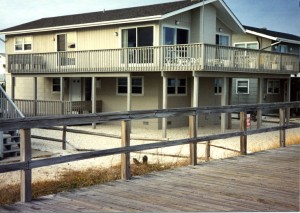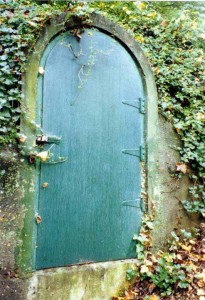 Emma’s apartment was small. I had furniture and belongings in storage. If I were going to stay, we’d need a bigger place. So, we looked for something to buy.
Emma’s apartment was small. I had furniture and belongings in storage. If I were going to stay, we’d need a bigger place. So, we looked for something to buy.
Ultimately, we found a charming 1894 Victorian in the historic district of a central Delaware town. We bought the house and in August 2002 moved in.
Saturday, December 31, 2011: Gaggles of Strangers –Emma is residing in the hospital bed in our living room. We have hospice now. Since Christmas, Emma has become agitated. Her doctor recommends continuous care, a temporary service limited to the duration needed. Our beloved hospice nurse, Tess, sets it up for the weekend, while she has the days off. Ron, a loving nurse sits with Emma all day. He holds her hand, talks to her and sings to her. At night, the team from the River Styx arrives. Upstairs in bed, I hear them coming and going, conversing in stage whispers. Not following my specific orders, they take control of our house. I am ready to hand them the monthly mortgage bill for payment.
Sunday, January 1: Strangling Gaggles: Emma has become responsive this morning. She has taken her medications and eaten her breakfast. She is calm, resting. In the afternoon a substitute Tess arrives. The nurse does not introduce herself. “Who are you?” I ask. She tells me her name and says she has been here before. “Oh, I’m sorry,” I say. “So many nurses have been through here I don’t remember all their names. “Well, you have your team and you have me visiting,” she replies. “I’m not that stupid,” I counter. She splutters to herself. She wants to cancel the continuous care for Monday. “Tess told me Friday and an administrator confirmed yesterday that Ron would be here through Monday,” I say.
“Well, I’m discontinuing it,” she says.
I tell her I have made plans for Monday. I was going to visit a friend to get some mustard greens, spinach and radishes from their garden – where else could I find fresh local greens in winter in Delaware? I was so excited to be having a rare day out – we’d have lunch with another friend, network about new business marketing ideas, and in the end I’d eat fresh, crisp greens that didn’t taste like they’d resided in the back of a refrigerator for a month.
Nevertheless, this substitute Tess, with the weekend administrators, arbitrarily shredded my plans, overriding Tess and Emma’s doctor’s orders that Tess would make the evaluation Monday whether to cancel the continuous care.
“Who will watch my mother tomorrow morning?” I ask her.
“Get someone to sit with her,” she says flatly. I, the sole caregiver, with no family in the area, have no one to call upon, and Emma’s and my income is such that I can barely afford heating oil this winter. “We’re not a babysitting service,” she adds
“Will you do it?” I ask her.
“I? Why should I do it?” she replies.
“Well, who would you suggest?” I ask.
“Pay a private nursing agency.”
“Are you buying?” I ask.
“Me? Why should I buy?”
I am ushering her out the door.
I grab the phone and sit outside on my front porch. Tears well in my eyes. Now what? I ask myself. Now what?
The phone rings. The voice is my best friend of 40 years, the one who knows me best, from Southern California. “I sensed that all was not well with you and you needed support,” she says. She is caregiver for her mother who also has dementia. Our experiences often match. As happens these days, I am about to step over the edge and someone catches me; this time it is she.
Although, this thought did flit through my mind:
I say to my California friend, “It’s a good thing I don’t have a shotgun, because had I blown that nurse’s head off, it would have made an awful mess all over the rug.”
“Yes, and you would have had to clean it up,” she says.
Exactly.
Then I call my friend with the garden of greens and the deep, raspy voice, to tell her I won’t be able to make it Monday. I relate the shotgun story about having the mess to clean up.
“Ya gotta have a drop cloth,” she says.
Samantha Mozart


























